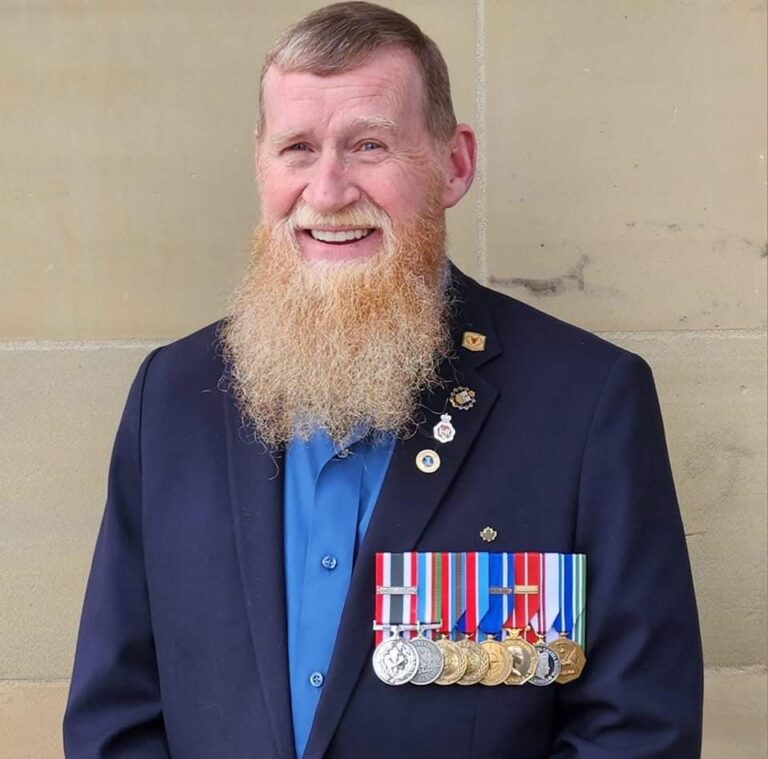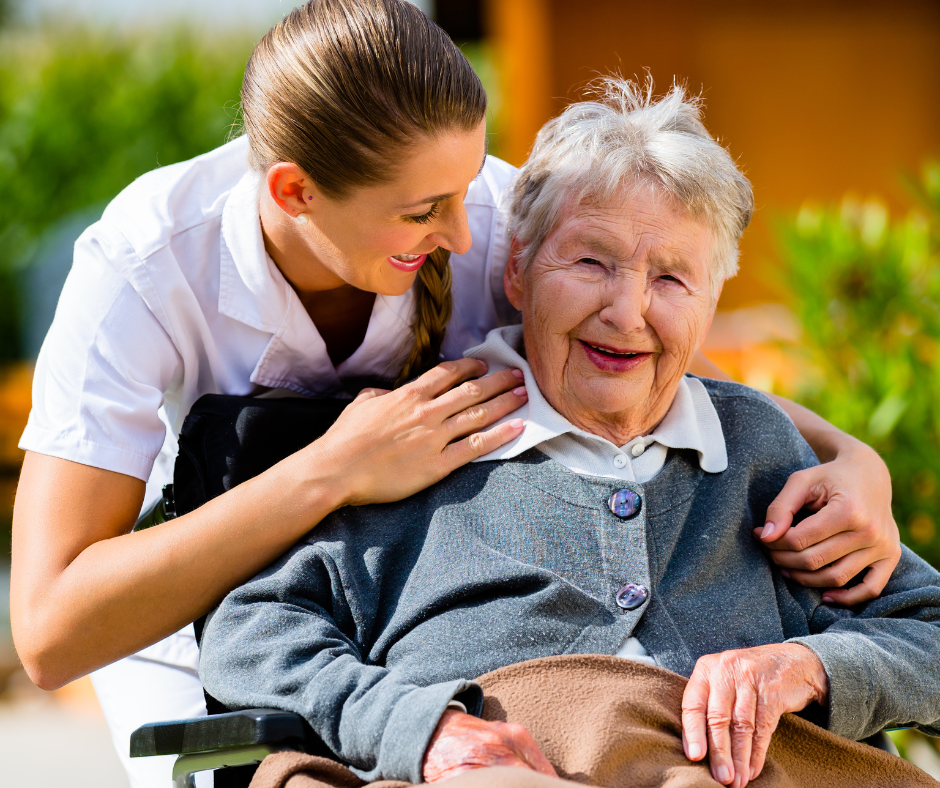A retired Canadian Armed Forces Veteran shares his powerful journey with PTSD—from trauma and loss to healing and growth. Learn why understanding PTSD in seniors is key to compassionate care.
Post-Traumatic Stress Disorder (PTSD) is a lasting mental health condition that can affect people after trauma—whether from military or police service, abuse, injury, or loss. For many seniors, especially Veterans and trauma survivors, PTSD can continue or even worsen with age due to memory loss, declining health, or the loss of routine.
June 27th is PTSD Awareness Day—a time to recognize the invisible wounds many continue to carry and to raise awareness about the realities of living with trauma—particularly among seniors, where the signs often go unnoticed.
In the world of senior care, PTSD is often misunderstood. At Serving Hands Senior Care, we believe in the importance of trauma-informed care for older adults—offering support with compassion, awareness, and dignity.
To honour PTSD Awareness Day, we are proud to share the personal story of Bruce, a retired Canadian Armed Forces Veteran, who has lived with PTSD for decades. His powerful reflection offers insight into the challenges and hope that come with aging while carrying the weight of trauma—and why understanding PTSD matters in elder care.
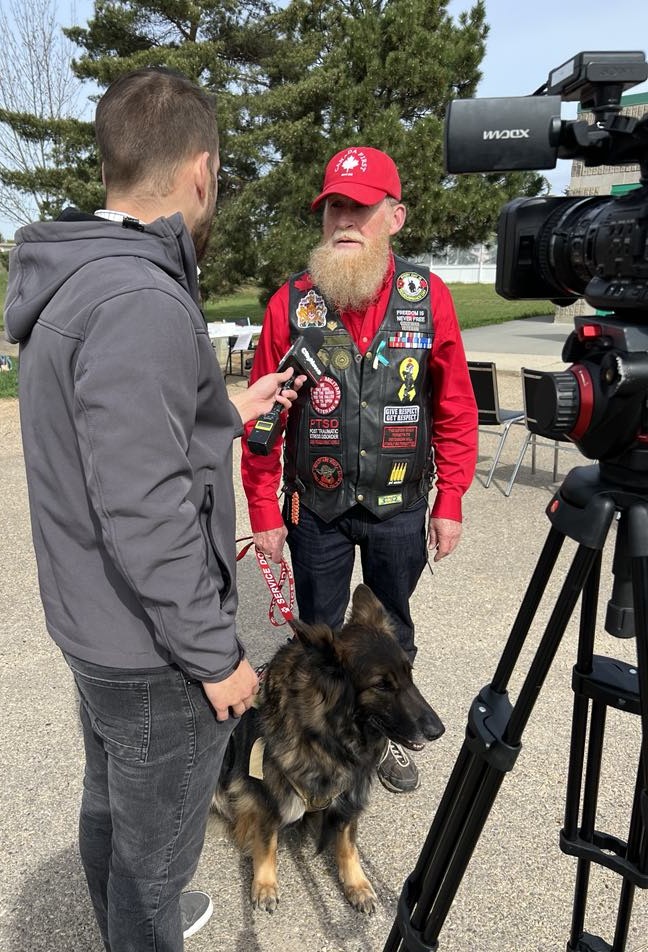
Bruce’s Story: The Battle at Home with PTSD
This is a personal reflection on what I—and many others—refer to as “The Battle at Home”—the ongoing struggle with PTSD among Canadian Armed Forces (CAF) Veterans.
The Beginning of Trauma
The first mention of PTSD in my military medical records relates to a mine incident during my peacekeeping tour in Croatia between September 1992 and March 1993. It’s important to note: we were in a war zone—the Balkans War (1991–1995). I wasn’t physically injured in that specific incident, but I was deeply shaken and disturbed by it, as well as by other events during that and other deployments. I served over 25 years, including more than 6½ years deployed outside of Canada.
(Meet Bruce and his service dog, Lola. Bruce got Lola in 2018 when she was a year and a half old. She’s a certified service dog and is his constant companion)
Bruce’s Challenge: Losing the Uniform, Losing Myself
I retired as a Sergeant from 1 Combat Engineer Regiment in Edmonton in December 2000. The moment I removed my uniform, I also lost the structure and identity that came with military life.
That loss, combined with years of unprocessed trauma, led to a rapid decline in both my physical and mental health.
I was soon on sick leave. I started seeing a doctor, which led to seeing a psychologist and eventually a psychiatrist. Over time, the red flags became impossible to ignore, and I surrendered to my ailments, retiring for the long term.
Insight: From Disorder to Injury to Growth
Over these past 25 years, I’ve come to see PTSD differently. I no longer view it as a “disorder” but rather as an injury.
And more than that—I’ve experienced what I now recognize as Post-Traumatic Growth.
PTSD Doesn’t Discriminate
PTSD doesn’t discriminate. It can affect anyone—regardless of age, profession, or income.
Like that mine incident, it often begins with exposure to a specific situation. Layered with the complexities of life, the impact can vary widely from person to person.
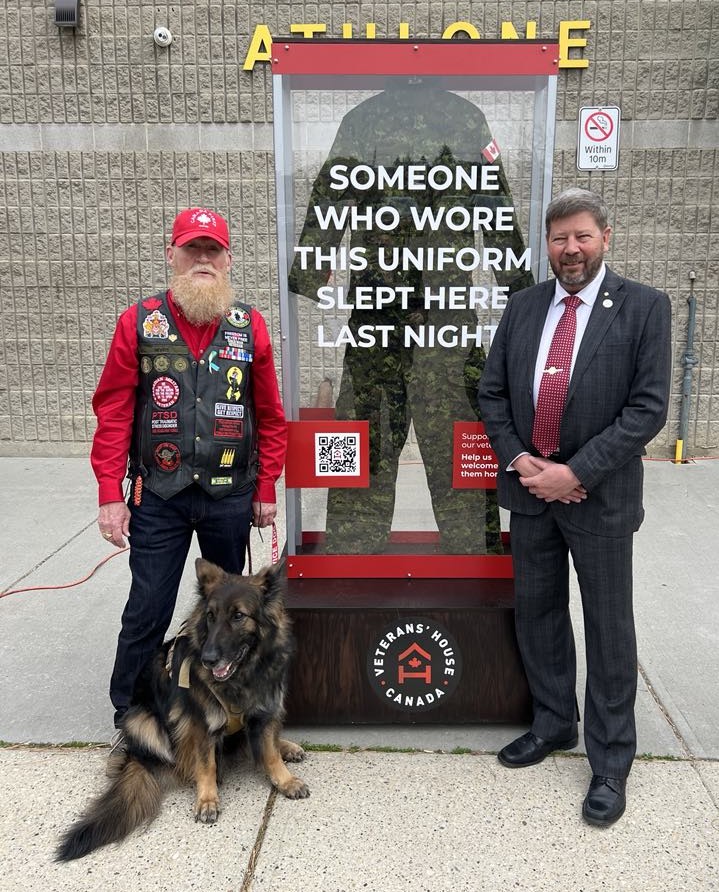
The symptoms can be overwhelming:
- Anger
- Depression
- Anxiety
- Personality changes
- Impulsiveness
- Confusion
- Concentration issues
- Nightmares
- Hypervigilance
- Fear of crowds
- Restlessness
- Flashbacks
- Suicidal thoughts
For nearly two decades, those symptoms shaped my life into something dark and despairing.
(This encased uniform is part of the “In Uniform” campaign by Veterans House Canada, raising awareness and support for homeless Veterans.)
Turning Point: Beginning of Healing
But healing began about ten years ago.
My turning point came when I chose to surround myself with people who understood—my brothers and sisters in the Veteran community. I didn’t do all the recovery on my own, but I did have to make the choice to take positive steps. No one could make that decision for me.
Recovery has many elements:
- Exercising
- Eating well
- Choosing your circle wisely
- Quality therapy
- Real friendships
- Peer support groups
- Neurofeedback therapy
- Volunteering for purpose
- Faith and hope
For me, Neurofeedback therapy made a big difference. Volunteering gave me renewed purpose. Faith and hope offered light in dark places.
There was a time we were taught not to speak about things like mental health—especially in the military. That silence has kept too many of us from having honest, healing conversations. So, let’s change that.
A Call to Listen and Support
Be available. Be present. Listen more than you speak.
And let others share their story—without judgment.
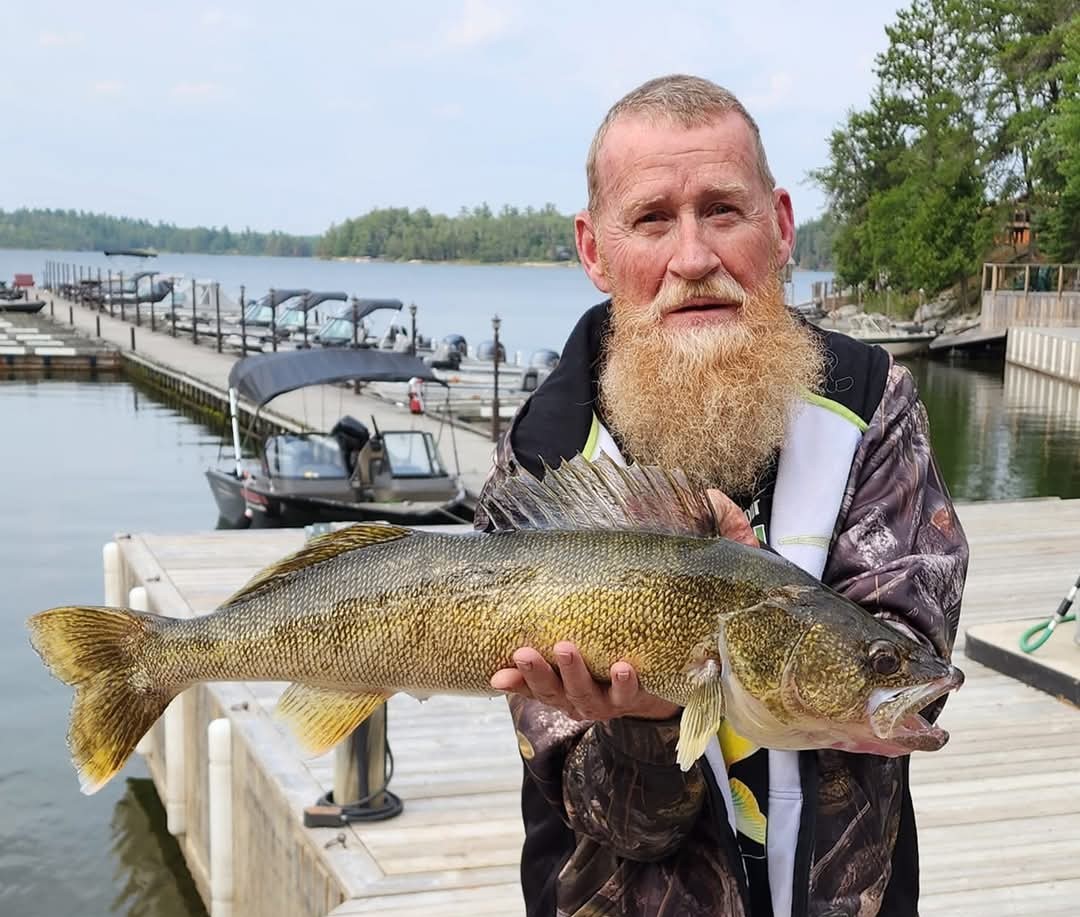
(Fishing is one of Bruce’s favourite pastimes. His family and close friends say he’s always joking that ‘his gills are always flapping.’)
Conclusion: Honoring the Journey, Changing the Conversation
Bruce’s story is a powerful reminder that healing is possible, even after decades of pain—and that no one should have to face PTSD alone.
In senior care, recognizing the long-lasting impact of trauma allows us to meet individuals with deeper understanding and gentler care.
As caregivers, family members, and friends, we can help by listening without judgment, offering calm reassurance, and creating safe, structured environments. Simply being present can mean everything.
We thank Bruce for his courage and honesty in sharing his journey with us. His voice adds strength to a conversation that matters—one that we all must continue.
How Serving Hands Senior Care Can Help
At Serving Hands Senior Care, we understand that the effects of trauma, including Post-Traumatic Stress Injury (PTSI), don’t end when military service does. Whether you’re a Veteran, a family member, or someone navigating the invisible wounds of trauma later in life, our team is here to support you with compassionate, personalized care.
We offer:
- Compassionate support from caregivers who are patient, attentive, and respectful of individual needs.
- Help create safe, structured home environments.
- Assistance with daily routines that support mental and emotional well-being.
- Respite care for family members and caregivers.
- 24/hr & Palliative Care
- A listening ear, a helping hand, and a heart for service.
If you or a loved one are struggling with the lingering effects of trauma, you’re not alone. Let us walk alongside you on your path to healing and hope.
Visit www.servinghandsseniorcare.com or call (780) 963-1516 to learn more.
- Helen B’s Remarkable Journey: From Registered Nurse to Family Caregiver - October 17, 2025
- Cracks in the Armor:How to Catch Skin Trouble Before It Starts - September 12, 2025
- Shining a Light: 65 Years of Epilepsy Support for Seniors - July 24, 2025

